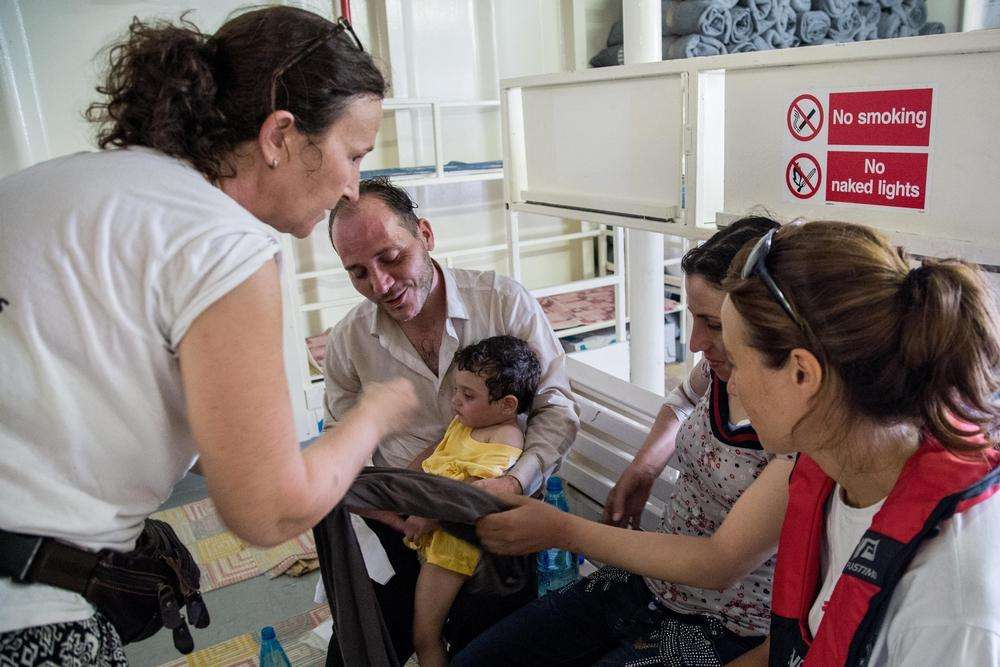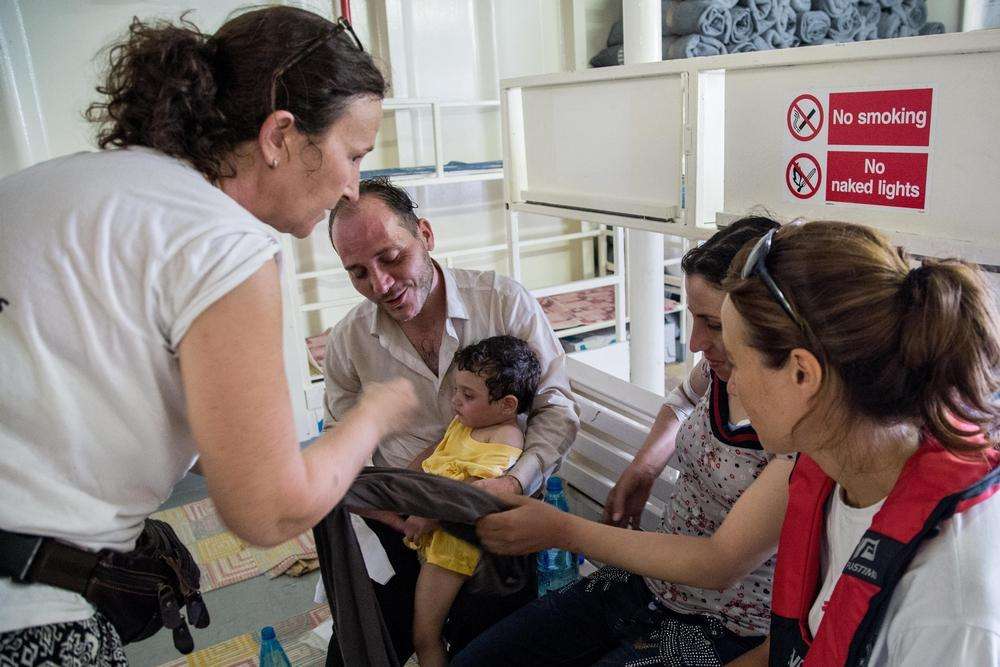Mohammed, Diana, and Azeel
Thirty-five-year-old Mohammed clutches his one-year-old daughter Azeel in his arms while his wife Diana, her eyes bright red from salty sea water, tries to collect herself inside the hospital area on board the Doctors Without Borders/Médecins Sans Frontières (MSF) rescue ship Dignity 1.
This Palestinian family was seconds away from losing their daughter after an overloaded wooden boat carrying them to Europe capsized some 14 miles off the Libyan coast. They were brought to the MSF boat by an Irish rescue team because Diana needed urgent medical attention. Just a week earlier, she had a kidney dialysis.
The family, still traumatized by the event, struggled to comprehend what had happened. “The boat was having problems after we left Libya, and we had to get rid of the water in the engine room,” said Mohammed. “Afterwards things seemed to go better, and the sea was calm. Then, suddenly, the boat started moving and rocking and we realized we were sinking.”
When the Dignity 1 arrived on the scene, nothing but floating debris remained from the wooden boat that Mohammed and his wife had taken to flee the war and instability in Libya, where they were living. “The country is divided between rebels and militia,” said Mohammed. “There is no future for us there, for our daughter. We were treated like a worse kind of human in Libya and people abused us. We needed to flee.”
Still shocked that they made it to safety, the family was evacuated to the Italian coast, where Azeel and her mother could receive further treatment and recover from the trauma they experienced at sea.
Alea, Mohammed and Dana
Alea was five months pregnant when the wooden boat she and her husband boarded to escape the war in Libya sank with 600 people on board. For the last week she had been worrying because her baby hasn’t moved and she cannot check if it’s alive. She and her husband were desperate to leave Libya. She could not get access to health care there, because they could not afford a private hospital and public ones were reserved for Libyans.
Alea is shaking as she is helped on-board the Dignity 1. She can barely contain her shocked as she describes the tragedy she witnessed. “I was inside the ship when it started sinking,” she says. Her husband Mohammed boards the Dignity 1 in his underwear, soaked to the bone. He dived under the water and pulled his wife to the surface when the boat sank.
“I was sure that was the end of me. He saved my life,” says Alea. But their unborn baby might not have survived the shock and stress of the trip.
In the hospital area, an MSF midwife carefully arranges Alea on the bed and tries to find her baby’s heartbeat. In the corner stands Dana, a 17-year-old from Damascus, Syria, who was also on the boat and became a friend of the family. Dana smiles and translates the midwife’s questions from English to Arabic: “When was the last time you felt the baby?”
“It was a week ago,” says Alea.
Dana met Alea and Mohammed in Libya, where she arrived after fleeing war in her hometown. “I was so tired of seeing death and blood every day,” she says. It was her last year of high school. She and her father took a lengthy and dangerous route to Turkey, but could not push on to Greece by land because the long walk was too much for Dana’s 65-year-old father. They took a plane from Turkey to Libya and then embarked on the boat.
The dramatic silence in the hospital room is finally broken by a sound, at first very quiet, that grows clearly into a heartbeat. It is the heart of the five-month-old fetus that Alea feared dead. Her husband saved two lives when he pulled her from the belly of the sinking boat.
Learn More About MSF's Work in the Mediterranean





